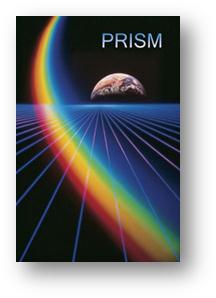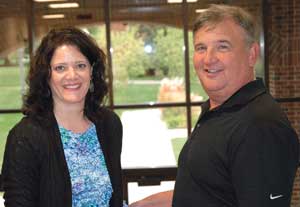University Communications and Marketing
College of Education grant promotes inquisitive nature in elementary science curriculum
January 3, 2012
Contacts:
Ken Miller, College of Education, 657-2034
Jeanie Kalotay, PRISM Project Coordinator, 657-2317
Dan Carter, University Relations, 657-2269
MSU BILLINGS NEWS SERVICES — We’re all born with certain levels of inquisitiveness. That pondering of the world at its basic levels is what is at work when a child sifts through dirt to find worms or watches the clouds float across the sky.
Yet building that inquisitiveness into grade school curriculum isn’t easy. With pressure to learn a set amount of material over the course of a year with a crowd of 22 third-graders, experimentation and inquiry hasn’t been the norm.
Now, with the help of a one-year extension on a previous three-year grant of more
than a half-million dollars, a Montana State University Billings program will help
elementary educators from across the region implement the theory of inquiry in science
teaching.
Dr. Ken Miller, Director of Educational Programs and Department Chair at the MSU
Billings College of Education, was recently awarded a $134,000 extension of a grant
of $675,000 to continue the Partnership to Reform Inquiry Science in Montana (PRISM)
project. Over the next year, he and others at MSU Billings will continue work with
educators in 15 school districts across central and southern Montana to develop and
strengthen both the pedagogical and content understanding of inquiry-based science
teaching. Key partners will be Dr. Michael Scarlett in the College of Education and
Dr. Stuart Snyder in the College of Arts and Sciences.
Funded through the Montana Office of Public Instruction, the PRISM project is coordinated by Jeanie Kalotay at MSU Billings. PRISM partners are the Southern Montana Alliance for Resources and Training; the Comprehensive System of Personnel Development (CSPD) Region III; the Alliance for Curriculum Enhancement; Billings Public Schools; and the Montana Small School Alliance.
The idea, Miller said, is to promote and encourage teaching methods that allow students to find out for themselves just how cool science really is.
“It’s a way for students to learn to ask and answer their own questions,” he said.
 Under the process he calls “guided inquiry” teachers in grades 3-6 learn how to build
science curriculum to channel the inquisitiveness every child carries with them. Instead
of feeding them textbook information that can later be regurgitated onto a test sheet,
teachers learn how to help students formulate questions that they can solve themselves.
Under the process he calls “guided inquiry” teachers in grades 3-6 learn how to build
science curriculum to channel the inquisitiveness every child carries with them. Instead
of feeding them textbook information that can later be regurgitated onto a test sheet,
teachers learn how to help students formulate questions that they can solve themselves.
For example, he said, students can look at water running through a small stream, like that in Pioneer Park. Instead of being told by their teacher that it carries a certain volume of water from one point to another, the teacher can pose a question such as “I wonder how much water goes through there in day? Is it enough water for a small town?”
Naturally, it all depends on how deep the stream is, how fast the water is moving, and how much water is needed for a small population. But until that teacher uses his/her own inquisitiveness, the students don’t get an opportunity to use theirs.
“The very question can generate more questions,” Miller said. “Eventually the kids will be able to think up their own questions and successfully solve those questions on their own. This method of delivering science content to children integrates other disciplines like mathematics, technology and engineering."
In the first three years of the grant, Miller and Kalotay have seen excitement, encouragement and results from the classroom teachers involved in the project. There were 60 teachers from the central part of Montana who took part in the professional development training. They met three times a year to take in workshops and completed online “SciPacks” through the National Science Teachers Association Learning Center to use in their home schools.
Those SciPacks, Kalotay said, provide the content that teachers need to help build a scientifically literate citizenry.
“We heard from some teachers that because of this program, their whole way of teaching has changed,” she said.
Some of those teachers will now work as “inquiry coaches” for colleagues in schools from Red Lodge to Lewistown. The new funding will be used to help develop networks to encourage inquiry-based teaching across the region.
Eventually, Miller said, the state Office of Public Education can use the SciPacks and learning communities as examples for building science literacy in other academic areas such as reading and writing.
Miller also said the grant demonstrates the kind of collaboration exemplified at MSU Billings. Staff at the Montana Center on Disabilities helped Miller write the grant and Snyder, an associate professor of physics, serves as science content advisor.
For more information on the PRISM grant, contact Kalotay at 657-2317 or via e-mail at jkalotay@msubillings.edu.
PHOTO ABOVE: Jeanie Kalotay, left, and Ken Miller at the MSU Billings College of Education manage and coordinate the Partnership to Reform Inquiry Science in Montana (PRISM) grant. Funding from the grant helps to encourage and enhance inquiry-based science education in elementary school classrooms.
